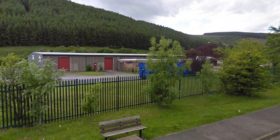Future of Adult Social Care Services to be decided next week

The future of Neath Port Talbot Council’s in-house adult social care provider services will be decided next week.
A report outlining two options for alternative models of delivering the services has been published on the Council’s website. Any new delivery model will encompass Domiciliary Care, also known as Homecare, and Day Services.
Cabinet members will be asked to decide between a wholly owned Local Authority Trading Company and the intermediate solution of an In-house Business Unit when they meet on Wednesday 24th February.
Officers were due to present Cabinet with a full business case for a wholly owned Local Authority Trading Company. However, in the process of developing this, they concluded that there was another option which could also be considered, thus next week’s report explores two options.
Option 1 is a Local Authority Trading company, wholly owned by the Council. Under this option some 334 full time equivalent staff would transfer to the company under Transfer of Undertakings (Protection of Employment) Regulations 2016 (TUPE) with their terms and conditions protected. The company would carry out at least 80% of its work for the Council, whilst offering other income generating services. Councils in Wales now have a duty to offer individuals a Direct Payment so that they can arrange their own support instead of the Council providing services for them and the company would also compete for this work. The management of the budget would remain with the Council and the company would be accountable to a board which could include councillors in the majority.
The main advantages of this model would include a greater focus on core objectives like quality and productivity and on creating incentives to perform without the need to resort to the practices, pay and conditions employed by the private sector. This model is also compatible with public sector values and has the potential to offer savings more quickly.
The main risk of option 1 is that the ongoing financial viability is untested.
Option 2 is to set up the services in the same way as a limited company, but as an In-house Business Unit. The main advantages of this option are that the staff would remain in the Council’s employment. In addition, the Business Unit could compete for Direct Payments on an equal footing with other providers and would do this based on quality rather than price.
In order for the model to succeed, the services would need to be much more competitive and finances would be treated on a Profit and Loss Account basis, exposing the true cost of the services. Within 18 months, the hourly cost of the Home Care Services would need to reduce to circa £18 per hour and a significant reduction in casual sickness absence would also be critical.
The main risk of option 2 is that it might fail to create the necessary motivation for rapid change and improvement as effectively as option 1. In the event of the In-House Business Unit failing, there would be immediate provision for conversion to a limited company status along the lines of that outlined in option 1.
Cllr. John Rogers, Neath Port Talbot Council’s Cabinet Member for Social Care, Health and Housing said:
“Our Adult Social Care Services operate in a mixed economy and the Council commissions in the region of £32 million of these services from third party providers every year. In order to survive, our in-house services need to be much more agile so that they can compete and take advantage of the opportunities, such as Direct Payments, that are opening up in market.
“There are a number of other factors driving the need to create pressure in the system for rapid change and improvement. These include an ageing population leading to an increase in the demand for social services, high levels of existing demand within the county borough and the need for our in-house services to become more cost competitive without detriment to pay and conditions. The Social Services and Well-being (Wales) Act also presents its own challenges and opportunities.
“Whichever model is chosen, the important thing is that it gets the job done in terms of the rapid changes and improvements that are required.”
Spotted something? Got a story? Email News@News.Wales












